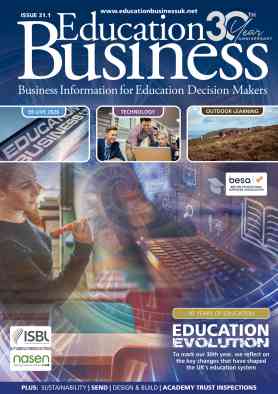
Overseas trips shape young lives
Whilst taking a student group overseas may feel like a daunting prospect, school trips abroad can have far-reaching benefits. So how can you make sure your trip runs like clockwork? The School Travel Forum offers some advice
Travel broadens the mind. As well as building tolerance and understanding, overseas school trips can have far-reaching benefits – from developing language skills to problem-solving, to developing a deeper understanding of history and culture.
As with all learning beyond the classroom experiences, overseas educational visits contextualise learning. They provide an opportunity to enhance classroom-based lessons, allow practical ‘hands-on’ experience and give students a deeper understanding of the academic subject. International school trips, though, also offer a life-enhancing and life-changing experience. And for many of your students, it may be the only opportunity they get to visit that country or take part in the activity.
Whilst taking a student group overseas may feel like a daunting prospect, you will be supporting their wider growth and development, helping to better prepare them for adult life in many different ways.
Gain new perspectives
In a multicultural world, visiting a different country is a valuable opportunity to expose students to new perspectives, helping them gain a deeper understanding of the historical, political and social context of that country.
Interacting with different people, perhaps in a different language, can help challenge stereotypes and develop their worldview. Being away from the familiar home or school communities builds a global perspective, helping students to develop empathy and understanding and build an appreciation of different cultures and ways of living.
Learning how to communicate
Whether it’s a dedicated modern foreign language trip, a sports tour or a historical excursion, taking students to a new country will mean they need to find a way of communicating with the citizens of that country. Buying souvenirs or sweets, ordering a coffee or hot chocolate, asking for directions – these interactions, however brief, will help to build your student’s confidence, making them more independent and resilient.
Discovering new interests
An international school trip exposes young people to new environments, situations, people and places. These episodes can be the trigger for a young person to discover a new passion or open their eyes to a new career path.
Living away from home
The trip might just be for a few days, maybe a week or for some trips further afield, it can be longer. However long the experience is, it will push your students out of their comfort zone and they’ll learn valuable life skills in the process.
Different routines and a new environment will help them become more adaptable. Needing to self-organise – be ready for different activities, to occupy themselves during downtime - will help them become more independent. While being responsible for managing their money for the duration of the trip gives students real-world experience in budgeting.
As well as helping your students in their own lives, skills such as these are prized by employers yet there are few opportunities within the standard school day for young people to develop these attributes.
Memories to last a lifetime
As well as providing an education and supportive environment as young people grow, teachers are keen to create enriching moments that pupils will remember for many years – that make students feel good, and enhance their knowledge and understanding.
Spending time surrounded by their peers, without their families in a new country - an overseas educational visit will give your students memories that last a lifetime. This shouldn’t be underestimated or undervalued.
Planning an overseas visit
If you are planning an overseas experience, how can you make sure your trip runs like clockwork? School Travel Forum was established 21 years ago to give teachers confidence when booking and planning a school trip by upholding best practice regarding health and safety.
Gill Harvey, School Travel Forum CEO, explains how using a School Travel Forum member will make sure your trip is one to remember for all the right reasons.
“Organising an educational visit or tour is very different to booking a family package holiday,” explains Gill. “There is more to consider – from appropriate transport to child protection to booking activities and excursions and financial protection. As well as simplifying what can be a complex process, our members provide schools with complete assurance regarding safety management.
“Our members are also members of either ABTA or ABTOT, giving schools financial protection and ensuring your trip continues should there be any problems with the travel provider.”
School Travel Forum members are often ex-teachers and understand the importance of ensuring a trip is part of the holistic learning experience that a school offers its students.
“Our members also provide resources to help teachers prepare their students for their forthcoming trip,” Gill continues. “They work with teachers to build the trip that meets their desired outcomes – recommending the best excursions and places to visit, and will provide further resources to help embed learning once the group returns to the classroom.”
In addition to booking with a School Travel Forum member, teachers can get advice and support from their local Outdoor Education Adviser.
Outdoor Education Advisers have extensive knowledge and experience of organising out-of-classroom learning sessions and visits and can provide high-quality advice and information. They also offer resources to support educational visits to help you and your students get the most from the experience.
Their National Guidance also outlines the key requirements that need to be considered when planning off-site educational visits or trips – from identifying when you need to get parental consent to ratios of staff and pupils.
A successful school trip is not just about coaches arriving on time, and flights and ferries departing when they should. A successful overseas educational visit will allow students to learn in the real world, make a subject relevant, help pupils grow in confidence, improve relationships and result in better engagement when back in the classroom. Students will also be more independent and resourceful and have memories they’ll remember long into the future.
Latest News
10/02/2026 - 09:47
Spending on schools across Scotland has increased by more than £1 billion in real terms over the past decade, statistics show.
10/02/2026 - 09:34
New training to empower school staff to improve mental health and wellbeing support for neurodivergent students has been launched by Anna Freud, a mental health charity transforming care for children and young people.
09/02/2026 - 09:58
Data from BAE Systems’ annual Apprenticeship Barometer found that 63% of parents said they would prefer their child to choose an apprenticeship over a degree after school.
06/02/2026 - 09:59
The work builds on guidance launched by Cardiff Council in autumn 2025, which provides clear and practical advice for schools responding to incidents where weapons are brought onto school premises.
05/02/2026 - 10:40
Schools are invited to take part in a practical, hands-on roundtable at Education Business LIVE 2026, exploring the complex relationship between wellbeing, attendance and behaviour in schools.







